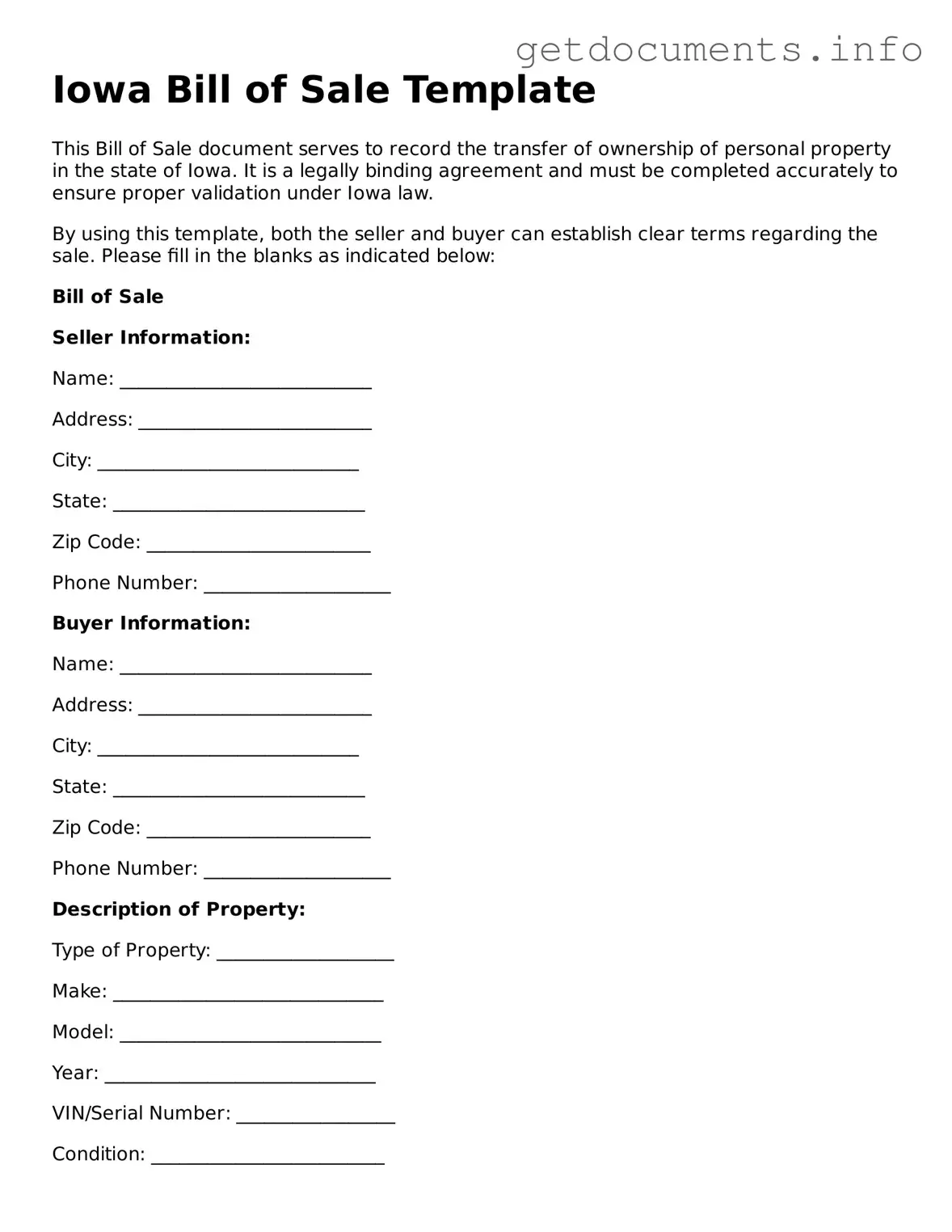Free Bill of Sale Template for Iowa
The Iowa Bill of Sale form is a legal document that records the transfer of ownership of personal property from one party to another. This form serves as proof of the transaction and includes important details such as the buyer's and seller's information, a description of the item, and the sale price. For those looking to complete a sale, filling out this form is a crucial step; click the button below to get started.
Access Bill of Sale Editor

Free Bill of Sale Template for Iowa
Access Bill of Sale Editor
Got places to be? Complete the form fast
Fill out Bill of Sale online and avoid printing or scanning.
Access Bill of Sale Editor
or
⇩ PDF File
